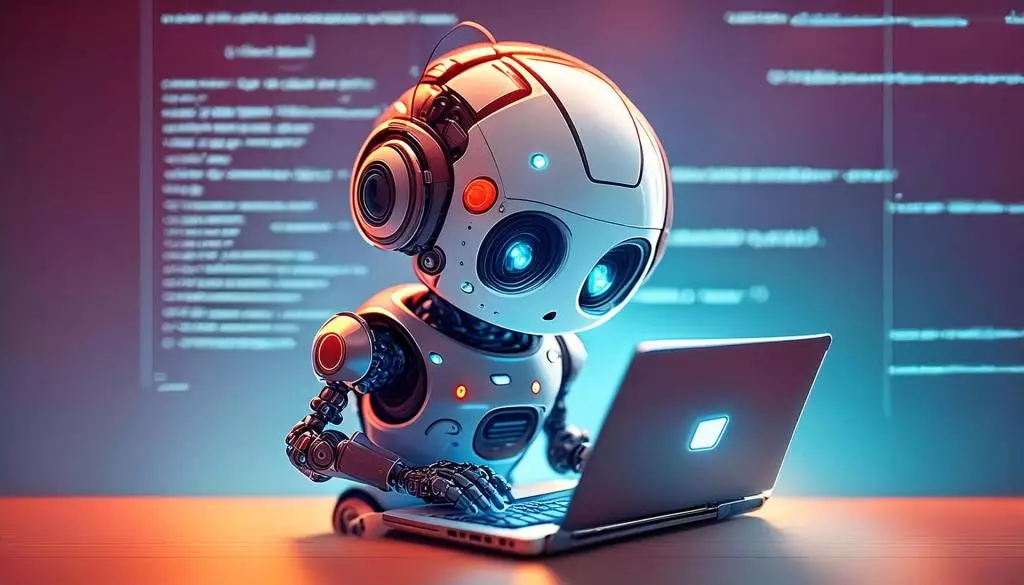In recent years, we have witnessed an unprecedented transformation in the realm of software development, primarily driven by the advent of AI-powered coding platforms. This evolution is not just about enhancing productivity; it’s about completely redefining how developers interact with code. Companies like Google and OpenAI are at the forefront of this revolution, continuously pushing the envelope of what is achievable through advanced technologies. The introduction of AI assistants like Google’s Jules represents a pivotal moment in this ongoing metamorphosis.
Jules was first released to a limited audience as an experimental autonomous coding agent capable of fixing bugs and automating mundane coding tasks. Its subsequent beta release marks a significant stride by Google in establishing a competitive edge among a myriad of other AI coding solutions. The potential of Jules extends beyond basic functionalities; it aspires to assist developers in managing coding chores that detract from their creative concentration. Josh Woodward’s assertion that developers can now delegate their less desirable tasks to an AI partner illustrates the transformative impact of tools designed to facilitate a more dynamic and efficient development process.
Asynchronous Coding and Its Implications
The notion of asynchronous coding, which allows developers to work simultaneously while the AI agent handles specified tasks, is a game changer. This operational model not only enhances productivity but also opens new avenues for collaborative workflows in software engineering. In this context, Jules’s capability to operate within a virtual machine while providing audio summaries and insights into its reasoning is particularly noteworthy. Such features do not merely serve as bells and whistles; they fundamentally alter how developers can approach their work.
Moreover, the competitive landscape is becoming increasingly convoluted, with multiple players releasing their own coding agents. OpenAI’s Codex, for example, has already made significant waves by transforming itself from a conventional coding model into a robust coding agent. Its synergy with GitHub Copilot further showcases the trend towards automation in coding practices. This competition among coding facilitators underscores a growing arms race within the tech industry, further propelling the need for innovation and efficiency.
The Allure of Vibe Coding
At the heart of this technological shift lies the concept of “vibe coding,” wherein much of the application development occurs through informal prompts rather than traditional coding techniques. This method reflects a broader democratization of software development, allowing individuals with limited coding backgrounds to engage more fully in creating applications. The rise of vibe coding dovetails with the functionalities offered by platforms like Google’s Firebase, which empower non-coders to partake in the AI development ecosystem.
Firebase is particularly noteworthy as it enables users to build complex applications by leveraging AI capabilities, which traditionally required an in-depth understanding of programming languages and paradigms. By facilitating a more accessible development environment, Google not only broadens its user base but also fosters an innovative culture that welcomes experimentation and creativity among its users.
The Competitive Dynamics of Big Tech
The involvement of tech giants like Google and OpenAI has escalated the stakes in the AI coding domain, drawing attention from both developers and industry watchers alike. Their entry into this market signals a recognition of the importance of developing autonomous coding solutions that can significantly reduce the burden of development tasks. As each company rolls out its proprietary tools, the demand for unique functionalities that cater to diverse developer needs becomes crucial.
Inside Google, the range of solutions goes beyond Jules, as AI is interwoven into various products, providing a comprehensive toolkit for developers. Tools like Code Assist and AI Studio further clarify the range of offerings, allowing developers to experiment with AI applications tailored to their specific needs. Each of these products highlights Google’s strategy to present a diversified and potent portfolio that meets the evolving demands of modern software development.
As excitement builds over emerging coding technologies and autonomous coding agents, the urgency for developers to adapt and embrace these innovations cannot be overstated. The future landscape of software development is being actively shaped by these advancements, promising things we have only begun to explore. In an industry hungry for efficiency and effectiveness, the rise of intelligent coding assistants is not just beneficial; it is essential.

